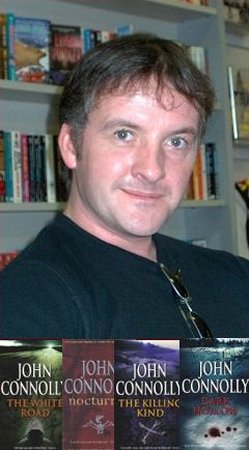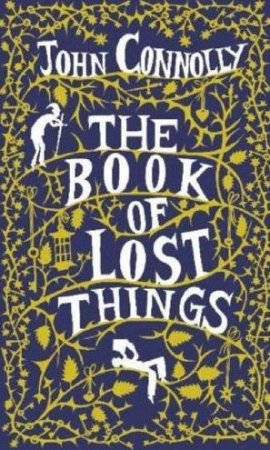



|
|

|

|
|
SPEAKING from his Dublin home, Irish author John Connolly confirms he is putting the finishing touches to The Unquiet, the sixth book in his series about haunted Maine private eye Charlie Parker. That news should come as a relief to those fans who have lapped up
Parker's adventures since his debut
Every
Dead Thing Yet despite this warning, Connolly has taken time out from crime for his
latest publication to hit the bookstore shelves,
The
Book of Lost Things "I know that if I write another Parker book it will sell x-amount of copies. It's good to take a chance now and then," Connolly said. "I'm a really hard judge of what I do, but I'm really proud of the book. I really feel it is the best thing I have done. I really feel that I am progressing but readers may feel differently." He is trying not to feel too despondent about the results of a poll on
his own website which invited readers to vote for their favour Connolly
books. Every Dead Thing topped the list, with a steady fall in
popularity for each successive book until a slight upward turn for the
last Parker book,
The
Black Angel "It was like a downhill ski-slope! I might as well have given up after the first book!" he laughed. If there is a lingering suspicion that his readers would be happy if all he did was turn out endless variations of his first book, Connolly is fortunate his publishers have been more receptive to a new direction. "I wanted to write this book and thankfully Hodder (Connolly's UK publishers) liked it and so did my American publishers. But they might not have. Nobody has ever said they want me to do something. They have really given me my head," he said. A previous departure from criminal matters was teh supernaturally themed
short story collection
Nocturnes "I think people value their time so much that when they read they want to slip into something more substantial. I'm not disappointed. I knew that was going to happen and I think people who really like my books will eventually pick it up. I'm lucky. I can pay my bills, so why not take that leeway?" Yet even the Parker books are a long way from the standard private eye story, throwing up a challenge to crime fiction's strictly rationalist tradition with ghosts and fallen angels thrown into the mix with some of the most macabre human villains in contemporary crime fiction. "I thought the supernatural element would thin out, but it just seems to creep in," Connolly said. These otherworldy elements and the folklore motifs of
Dark
Hollow "If you read people like Bruno Bettelheim and his book
The
Uses of Enchantment Connolly acknowledges there is a strong autobiographical element to the book. "I was that child," he declared. "I did have a fairly troubled early adolescence and my parents did haul me off to a psychiatrist as they do with David in the book." The pre-war setting, he added, was chosen to reflect the turmoil David experiences internally in the wider world as well as dispensing with the distractions of modern adolescent life like Playstations and mobile phones, but it maintains his habit of shying away from an Irish setting for his novels. "Initially when I began writing I was just reacting against the strictures I felt were placed on Irish writing," he explained. "And American crime fiction doesn't work when you relocate it to Ireland. We're not an urban nation." Which is why he is content to live in Ireland and set his crime stories in the USA. Although Parker's investigations have taken him to New York, New Orleans and the Deep South, it is Maine which is his base and Connolly, like Stephen King, has tapped into what he describes as "that sense of something strange" about the state he first came to know while spending a summer working in a Maine hotel in 1991. "I very rarely have to make things up," Connolly revealed. "I
wrote a book a few years ago called
The
Killing Kind The Book of Lost Things is published by Hodder & Stoughton, price £12.99. See what John got up to at his book launch… |
||

| Webmaster: Tony 'Grog' Roberts [Contact] |